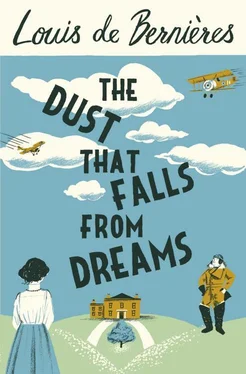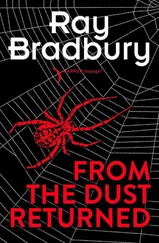About the other matter of which you wrote. I have seen your son Albert since, and I have given him and his brother my open invitation to come and see me whenever they wish, and I think they may be coming to tea with me shortly. I trust that when you write to them you will say again, what I have already told them, that they must look upon me as a great friend and that I am anxious to be a help to them at any time.
In regard to the leave, I fear it has been stopped for the present, but I am writing to your son Sidney to ask him to call and see me, and perhaps a line to one of his officers may help to give him a few days with you all.
Please excuse me if some of the details of my letter hurt you somewhat — that is quite remote from my intention. What your loss is, one dare not say. I know that I have lost a real friend — we had become close even in the short time that we knew each other — and the whole staff realised that here had passed a man whom our country can ill spare. On their behalf I send sincere sympathy. Personally, I go further, and unite myself with you all a little more fully in your loss, if I may.
Commending you all to the comfort of the Divine Comforter, and in real sympathy, believe me yours very sincerely,
H. V. Fairhead, CF
Passed by no. 1900 censor
3
For yourself alone please
No. 8 Clearing Hospital
British Expeditionary Force
France
1 March 1915
Dear Miss McCosh
My heart has been with you in your awful yet glorious sacrifice since the evening of 19 February times without number. You have been in my prayers daily. I know, though so little, of the dreadful blank which must have come into your life, and I confess how much I have dreaded having to write this letter. If I did not sympathise so fully, it would not have been hard. Only one who really loves and has lately suffered severe bereavement, and has been face-to-face with the severest loss that this world can hold, can really sympathise, and I have been through it all. My heart aches for you, and I know how much you ‘don’t know how to live’. Oh, how I long to be some comfort to you, but one feels helpless when so far away. If I could only come and speak to you and tell you perhaps it would be easier for us both. You must have heard all the news from letters to Mr and Mrs Pendennis, but I must answer your questions.
Really and truly, Ashbridge was doing splendidly on the Thursday, and the surgeon was more hopeful on that day than he had been at all. Ashbridge wrote his letters to you and gave them to me, and was most cheerful. On Thursday evening he was rather restless but settled down and had a fairly good night. The next morning he was bright. It was not until the afternoon that he appeared worse, and when I went to him in the early evening he was not so well. The surgeon hoped that it was only one of the little relapses that all the severely wounded have to pass through. However, he got worse, and I went to him again. I was with him also during his last moments of consciousness. It was then that I asked him whether I should give you any message if he did not pull through. ‘Yes,’ he said, ‘give her all my love.’ He was perfectly happy, he told me, and I remembered something he had said to me before, perhaps in jest, to the effect that if he should die you would at least always remember him as he was when he was at his best, and would never have the opportunity to grow tired of him! He drifted into unconsciousness at 8.45 on Friday, and he passed away not long afterwards. The exact cause of his death was the shrapnel wound in the abdomen, which pierced the bowel and set up peritonitis.
You have heard all about that touching service in the cemetery. I will not repeat it. You were not forgotten, dear Miss McCosh.
No, your wires did not reach here until the Sunday, I think, and I sent them on to his brother Albert, but somehow or other I seem to think — is it only my imagination? — that he received a letter or two. I wish I had known him better because we had become real friends in those few short sad days, and I admired him greatly.
Dear Miss McCosh, it is remarkable that by the same post by which your letter reached me, one also came from my mother. My favourite sister, Millie, had passed away in a Zeppelin raid the night before I left from my leave at home. Like you, she wrote to say that in her great grief she had had a dream that our dear one had come and talked to her and said she was very, very happy. It comforted my dear mother so much, and she is a different woman now. Our dear ones are very close to us, to cheer us, to talk to us, to inspire us, always present, always working for, always loving us. May your dream not mean that he wants to tell you that he really is living, happy, the same cheerful, loving soul that he was here on earth? I do believe it with all my heart. The spiritual is very real, and when you realise that he has not truly left you, but that he is with you only you cannot see him so easily now, I know how noble you will be, and how happy you will be too. It is not a long, long goodbye, dear friend, it is a goodbye for the time being. Will you read a book, or one chapter of it, if I ask you to do so? It is the Bishop of Stepney’s new book In the Day of Battle . Read the chapter on Our Father carefully. It has helped me no end.
But you will be tired. I know it is no comfort that I give, or can give, only bald facts. With all my heart I go on my knees even now and ask Him, the Only Giver of Comfort, to send you the only source of comfort — the Divine Comfort — that He may help you bear the Great Sacrifice of love which He has called upon you to make for His sake and for Country’s sake. Please remember it is in the spiritual life you will see him, hear him, be close to him.
With all my sympathy and kindest regards, yours very sincerely,
H. V. Fairhead, CF
Passed by no. 1900 censor
29. I Have Need to Busy my Heart with Quietude
THE FAMILY WERE seated at breakfast. It was supposed to be one of those breakfasts where everybody drifts down in their own time and helps themselves to what lies within the chaffing dishes. Today Cookie had left kedgeree, devilled kidneys and scrambled eggs, and Millicent was going back and forth with pots of tea and hot water.
However, everybody had appeared at more or less the same time, attracted by the agreeable odours that had drifted up the stairwell, and they were now seated around the long table in the dining room, eating as quietly as they could, out of respect for Rosie’s extreme grief, and out of respect for her latest decision, announced the night before.
Rosie had spent three days sitting motionless in the morning room, on the seat by the window, with its long blue cushion that went the length of the bay. Bouncer lay at her feet. Rosie stared at the gate through which Ash had gone to war, and relived again and again the sight of his retreating back, the jaunty wave as he disappeared, the angle of his forage cap over his eyes, the hitching of his haversack. It was as if she had received a violent blow to the back of the head, or been buried beneath an avalanche. She could neither think nor speak. She twisted and untwisted a small handkerchief between her fingers, looking out through the window at Ash’s back disappearing, the turn, the jaunty wave.
Rosie’s sisters and her mother felt next to useless, although they did their best. They came in and out bearing fresh handkerchiefs, and put an arm around her shoulder and kissed her on the cheek, saying, ‘There, there, buck up, poor Rosie.’ The trouble with all of them was that they were half English and half Scottish, respectable, and imbued with the powerful emotional restraint that those races have inherited somehow (via God knows what route) from the Spartans. It was a matter of self-conquest, refusal to show weakness, refusal to become a burden to others. This inheritance does not diminish one’s natural sympathies, it merely makes them harder to express and to receive, and it is a legacy which it is extremely hard to unlearn. ‘Come now, Rosie dear,’ said her mother insensitively, ‘no amount of snivelling is ever going to bring him back.’
Читать дальше












